Sherry Parnell's Blog - Posts Tagged "readers"
Fiction. Fun or Functional?
I keenly remember a professor in one of my graduate literature classes asking the students to defend the purpose of fiction. It seemed ironic to me that a person who spent his life teaching fiction would ask others to substantiate it. It was a query he claimed was spawned from his brother’s strong opposition to what he considered a frivolous waste of one’s time, asserting that only nonfiction had any value to one’s intellectual development.
So their sibling rivalry forced me to not only defend but to also question my purpose in reading fiction and more importantly in my desire to write it. Suddenly everyone’s answer including mine seemed very important at that moment because I now was caused to wonder—was fiction simply just for fun or did it have an important function? And this question gave rise to an even more significant question for me—was my writing purposeful or pointless?
We all sat silent for a few moments. We readers of fiction, lovers of make-believe, hopeful writers were stunned. After a few sighs of disbelief and a few groans of indignation, each began his and her individual defense.
The woman in the front row insisted on the transportative powers of good storytelling. After all, many of us had been imprisoned in the Bastille or braved the rough seas aboard the Pequod. A man in the back emphatically defended the transformative power of beautiful prose. True, many of us had been affected or slightly changed by an exquisite passage that made us pause, wanting to live in the beauty of the eighteenth century British countryside or explore the wilds of the Congo.
The protests from us aficionados of literature grew impassioned as we argued that fiction’s purpose is to shape one emotionally, psychologically, and spiritually. We gave examples, we told stories, we offered proof. Except it wasn’t proof as our professor quickly pointed out. His response, we were all begging the question.
Begging the question is a phrase that is commonly misused to mean raising a question; however, it is actually a form of logical fallacy. It is a circular argument in which one’s initial assumption of a statement is considered true without actually proving it. So asserting that fiction affects one emotionally because it makes one feel is simply a restatement of the original premise.
Simply and sadly, he quickly negated our argument and refuted our reasons, invalidating our “proof” that fiction is functional. And he may have been right until science became involved.
“Your Brain on Fiction” by Annie Murphy Paul was published in the New York Times outlining scientific studies, which have provided proof that fiction affects individuals’ brains in more ways than many imagined. Studies are now showing that fiction helps readers feel empathy, develop socially, and have experiences outside of their own life, which enhance one’s growth emotionally and psychologically.
So perhaps the folks in the science department are now learning what we folks in the literature department always knew—fiction isn’t just fun, it functions as a vehicle to teach, transport, and most importantly transform. So grab a good book, curl up and don’t feel a bit of guilt because it isn’t just fun, it’s functional.
Please read this informative article that give us fiction readers and writers props. http://www.nytimes.com/2012/03/18/opi...
So their sibling rivalry forced me to not only defend but to also question my purpose in reading fiction and more importantly in my desire to write it. Suddenly everyone’s answer including mine seemed very important at that moment because I now was caused to wonder—was fiction simply just for fun or did it have an important function? And this question gave rise to an even more significant question for me—was my writing purposeful or pointless?
We all sat silent for a few moments. We readers of fiction, lovers of make-believe, hopeful writers were stunned. After a few sighs of disbelief and a few groans of indignation, each began his and her individual defense.
The woman in the front row insisted on the transportative powers of good storytelling. After all, many of us had been imprisoned in the Bastille or braved the rough seas aboard the Pequod. A man in the back emphatically defended the transformative power of beautiful prose. True, many of us had been affected or slightly changed by an exquisite passage that made us pause, wanting to live in the beauty of the eighteenth century British countryside or explore the wilds of the Congo.
The protests from us aficionados of literature grew impassioned as we argued that fiction’s purpose is to shape one emotionally, psychologically, and spiritually. We gave examples, we told stories, we offered proof. Except it wasn’t proof as our professor quickly pointed out. His response, we were all begging the question.
Begging the question is a phrase that is commonly misused to mean raising a question; however, it is actually a form of logical fallacy. It is a circular argument in which one’s initial assumption of a statement is considered true without actually proving it. So asserting that fiction affects one emotionally because it makes one feel is simply a restatement of the original premise.
Simply and sadly, he quickly negated our argument and refuted our reasons, invalidating our “proof” that fiction is functional. And he may have been right until science became involved.
“Your Brain on Fiction” by Annie Murphy Paul was published in the New York Times outlining scientific studies, which have provided proof that fiction affects individuals’ brains in more ways than many imagined. Studies are now showing that fiction helps readers feel empathy, develop socially, and have experiences outside of their own life, which enhance one’s growth emotionally and psychologically.
So perhaps the folks in the science department are now learning what we folks in the literature department always knew—fiction isn’t just fun, it functions as a vehicle to teach, transport, and most importantly transform. So grab a good book, curl up and don’t feel a bit of guilt because it isn’t just fun, it’s functional.
Please read this informative article that give us fiction readers and writers props. http://www.nytimes.com/2012/03/18/opi...
Breaking The Block
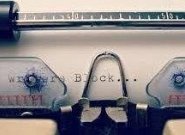 Whether you’re a professional writer, a student writing a paper, or an executive writing a business proposal, everyone at some point experiences writer’s block. Writer’s block is a condition in which a person is unable to create new work. It varies in severity from mildly annoying causing one to miss a deadline to disastrous causing one to completely abandon his or her work.
Whether you’re a professional writer, a student writing a paper, or an executive writing a business proposal, everyone at some point experiences writer’s block. Writer’s block is a condition in which a person is unable to create new work. It varies in severity from mildly annoying causing one to miss a deadline to disastrous causing one to completely abandon his or her work.Although most everyone is familiar with writer’s block, no one feels it as often or keenly as an author who is under pressure to continually create new and high-quality work. But if as a writer you have been blocked or are currently blocked, take heart, you’re in good company. F. Scott Fitzgerald and Charles Shultz are included among those who have experienced an obstruction in creative flow.
So what do you do when this problem strikes? The solution is different for everyone but I have discovered a few techniques that help.
Read: Read, read, and then when you’re done, read some more. Don’t discriminate in your material because ideas can come from the most unlikely source.
Talk to People: Start conversations with friends, acquaintances, and strangers. Remember, everyone has a story just not everyone can tell it but as a writer, you can.
Use your Senses: Listen, watch, smell, taste and feel. The way the light casts across the sky at sunset or the way chocolate chip cookies release a warm smell mixed with memories can open your senses and your mind.
Use Art to Beget Art: Look at paintings, listen to music, eat delicious foods. Sometimes enjoying and appreciating the art from another field can inspire ideas in your own field. Find inspiration in other artists’ creativity.
Change It Up: When working on a particular piece of work, take it in a different direction. Go against your first idea and instinct. Work against the current and see what it yields.
Stream your Consciousness: Put pen to paper or fingers to keyboard and just write—anything. Allow all your thoughts to flow onto the page. It’s like cleaning out a closet. You will discover what should be pitched and what is worth keeping.
Don’t Write: Sometimes you just need to step away. Allow your mind to relax. Exercise, walk the dog, go to the movies. Allow your mind to concentrate on another task; it is when ideas aren’t forced that they can flow.
Set a Deadline: Whether professionally or self-imposed, deadlines can sometimes force you to work past the block. If self-imposed reward the met deadline to encourage keeping it.
Start with One Word: Choose a word for it’s meaning or it’s sound and begin. The first sentence of my book came from a friend who upon seeing a vibrant red in a picture said that the color was so beautiful, she could swallow it. Remember every book, regardless of length, starts with one word.
Flow: Relax, let go, and allow the words to come. Don’t force it; don’t push it; just flow with it.
As a writer, I understand that writing can be both a passion and a frustration. So give these methods a try and good luck in breaking the block.
Book Club Favorites
While I'm busy writing, of course I'm a reader first. These books have been some of my favorite book club picks. Please check them out—they are all great conversation starters--and wonderful reads.
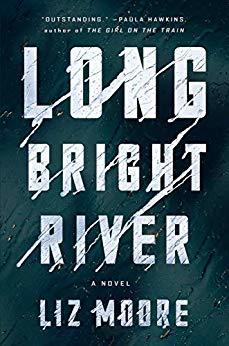
Long Bright River by Liz Moore
Described as “heart pounding and heart wrenching,” I love a novel that absorbs me quickly into the story yet never loses sight of the importance of character.
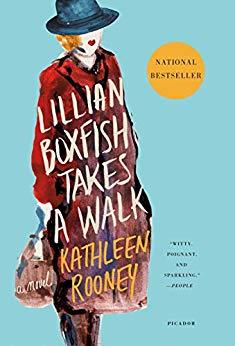
Lillian Boxfish Takes a Walk by Kathleen Rooney
I love that this book promises to walk with the reader not just through New York City in a love letter to the Big Apple, but also promises the reader a glimpse into the ever changing, always evolving times from the Great Depression to the era of hip hop, all painted across the canvas of NYC.
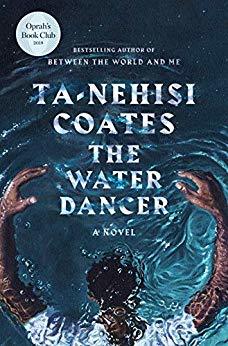
The Water Dancer By Ta-Nehisi Coates
After skimming the first few pages, this novel steeped in evocative language quickly drew me into the world of young Hiram Walker. Although difficult to read about the atrocity of slavery, Hiram Walker’s journey to freedom is one that needed to be told and so needs to be read.
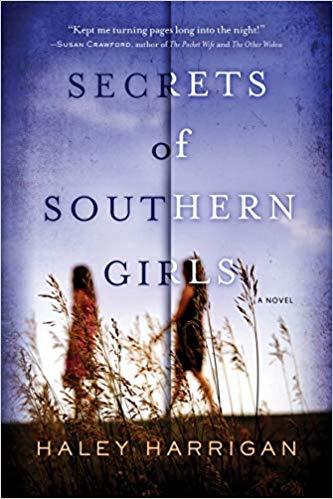
Secrets of the Southern Girls by Haley Harrigan
Part mystery, part coming of age, this novel centers on Julie Portland who accidently kills her best friend then is eventually pulled back to Mississippi to face the secrets and guilt that haunt her. This Southern Lit novel focuses on how one heals from tragedy—a theme that I find fascinating.
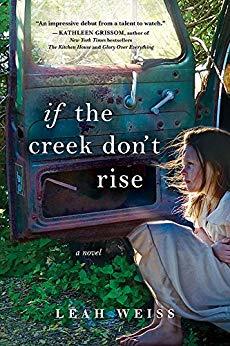
If the Creek Don’t Rise by Leah Weiss
Living in the Appalachian Mountains, Sadie Blue longs to make her mark in the world but living in such poor and challenging conditions makes this desire difficult. Endeared to the fiercely proud and humble people of such southern environs, I love the idea of being drawn into the one that Leah Weiss creates in her novel.
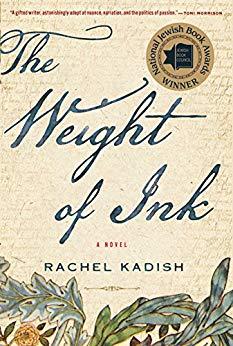
The Weight of Ink by Rachel Kadish
Being an Anglophile, I love that this novel is set in London in both the 1660s and the early twenty-first century. I’m intrigued how the narrative interweaves two intelligent women from separate time periods into a story where sacrifice and choice help determine their fate.
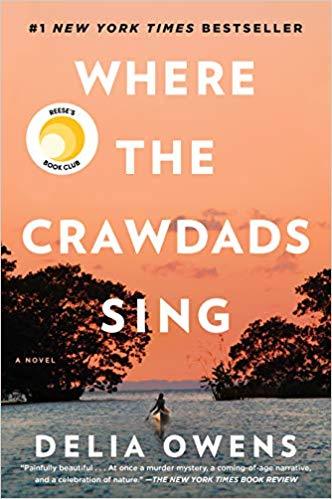
Where the Crawdads Sing
I would be remiss not to choose the book that several have compared to my novel, Let the Willows Weep. Flattered, I am intrigued to find the similarities in our stories. I also can’t resist a coming of age novel set in the beautiful southern landscape.
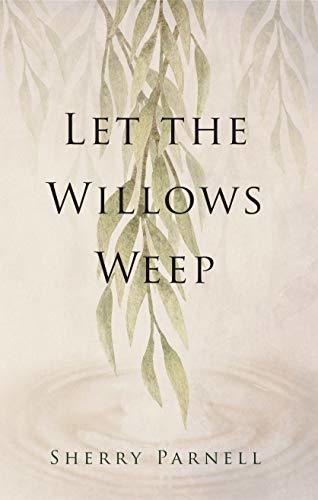
And if you would like to add one more to your own list, my novel Let the Willows Weep was just published in October. If you get a chance, please check it out!

Long Bright River by Liz Moore
Described as “heart pounding and heart wrenching,” I love a novel that absorbs me quickly into the story yet never loses sight of the importance of character.

Lillian Boxfish Takes a Walk by Kathleen Rooney
I love that this book promises to walk with the reader not just through New York City in a love letter to the Big Apple, but also promises the reader a glimpse into the ever changing, always evolving times from the Great Depression to the era of hip hop, all painted across the canvas of NYC.

The Water Dancer By Ta-Nehisi Coates
After skimming the first few pages, this novel steeped in evocative language quickly drew me into the world of young Hiram Walker. Although difficult to read about the atrocity of slavery, Hiram Walker’s journey to freedom is one that needed to be told and so needs to be read.

Secrets of the Southern Girls by Haley Harrigan
Part mystery, part coming of age, this novel centers on Julie Portland who accidently kills her best friend then is eventually pulled back to Mississippi to face the secrets and guilt that haunt her. This Southern Lit novel focuses on how one heals from tragedy—a theme that I find fascinating.

If the Creek Don’t Rise by Leah Weiss
Living in the Appalachian Mountains, Sadie Blue longs to make her mark in the world but living in such poor and challenging conditions makes this desire difficult. Endeared to the fiercely proud and humble people of such southern environs, I love the idea of being drawn into the one that Leah Weiss creates in her novel.

The Weight of Ink by Rachel Kadish
Being an Anglophile, I love that this novel is set in London in both the 1660s and the early twenty-first century. I’m intrigued how the narrative interweaves two intelligent women from separate time periods into a story where sacrifice and choice help determine their fate.

Where the Crawdads Sing
I would be remiss not to choose the book that several have compared to my novel, Let the Willows Weep. Flattered, I am intrigued to find the similarities in our stories. I also can’t resist a coming of age novel set in the beautiful southern landscape.

And if you would like to add one more to your own list, my novel Let the Willows Weep was just published in October. If you get a chance, please check it out!
Published on January 01, 2020 08:04
•
Tags:
book-clubs, books, fiction, historical-fiction, literary-fiction, readers, writers



